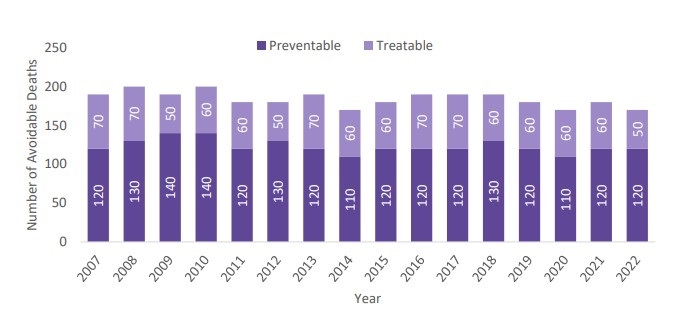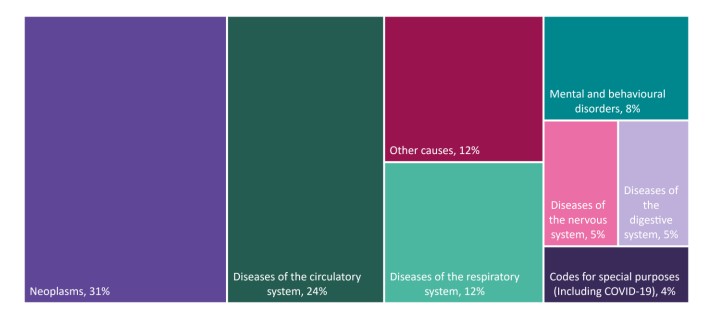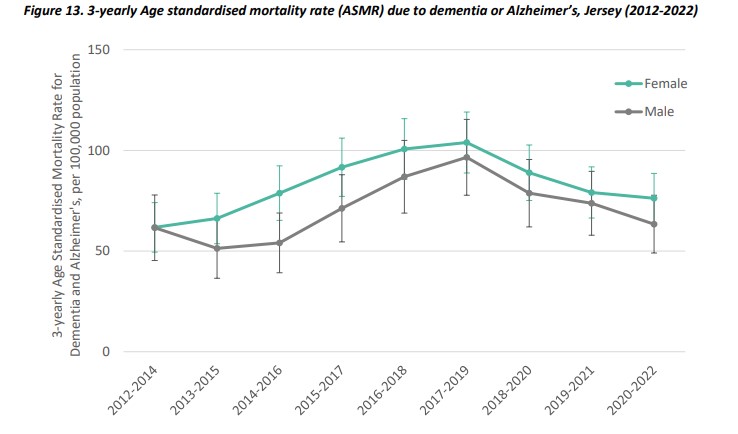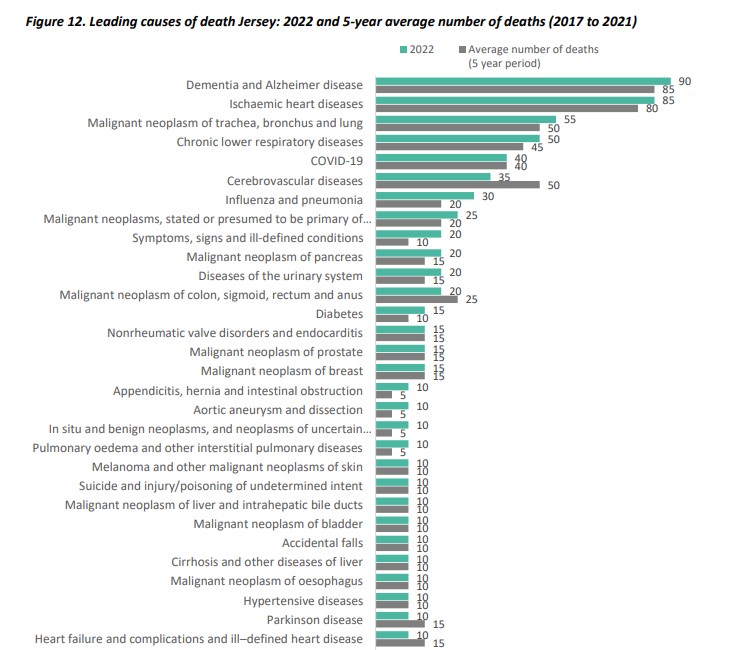


Around one in five deaths last year were 'avoidable', according to a new report.
Published on Thursday, Public Health's report showed that 920 of the island's residents (450 male and 470 female) died up to the end of 2022 – 100 more than the previous year.
Standardised against Jersey's current population age and size, the figure remains relatively the same as 2021 and significantly lower than England.
And 170 of those deaths – 22% of male deaths and 15% of female deaths – were classed as preventable and treatable, caused primarily by avoidable cancers, and diseases of the circulatory and respiratory systems.
The main cause of avoidable death in Jersey was cancer, with around 65 deaths – these included cancers of the trachea, bronchus and lung, breast, oesophagus, liver and colon.
Lung cancer remains the largest individual cancer type causing preventable deaths.

Pictured: the breakdown of avoidable deaths.
Grace Norman, Deputy Director of Public Health, said that the Public Health Strategy, due to be released next month, will target "lifestyle factors", such as Islanders' use of tobacco and alcohol, as well as diet.
She added: "We already do a lot of work in the food and nutrition space, particularly focusing on children. We go into primary schools and encourage children to eat healthy snacks, fruits and vegetables, and they get rewards for trying different foods.
"Avoidable deaths are absolutely the most important element of this report. These are the ones that are premature and that we can do something about by changing those lifestyle factors."
Assistant Health and Social Services Minister Deputy Malcolm Ferey said: "We know that adopting positive healthy behaviours contributes to longer and healthier lives and that many causes of death can be prevented. Preventable diseases are commonly caused by smoking, diet and nutrition, and alcohol consumption, and these are areas which are prioritised in the forthcoming Public Health strategy.
"Recent years have seen the impact of the covid-19 pandemic on islanders, and it is important to note just how resilient we as a community are. The pandemic is a testament to how well we work together to keep each other safe."
Avoidable mortality is based on the concept that premature deaths (under 75) from certain conditions should be rare and ideally should not occur in the presence of appropriate public health interventions (preventable deaths) or timely and effective healthcare (treatable deaths).
For example, alcohol-related deaths may be prevented by use of evidence-based prevention strategies to inhibit excessive alcohol use and related harms in a community.
Deaths from asthma could also be prevented by better management of the condition including personal asthma plans for patients, timely reviews of asthma care, and the prescription of more appropriate drugs.
The average age of death for Jersey residents was 79.
Cancers remain the main cause of death in Jersey at 31%.

Pictured: a breakdown of the causes of death (neoplasms are cancers).
The main causes of death – cancers, and diseases of the circulatory system – have remained the same since 2007. These two causes accounted for 54% of all deaths in 2022.
Covid-19 was the underlying cause in 4% of all deaths in Jersey – a similar figure to England.
There were around 130 deaths of individuals of working age (aged 16 to 64), and 290 were premature deaths (occurring before 75).
Dementia remains the only major cause of death without a treatment to prevent, slow or stop disease progression.
The proportion of deaths attributed to dementia was 10%, similar to that of 2021 when calculating it against the age composition of the population.
However, this has increased from 3% in 2009.

Pictured: the rate of deaths caused by dementia.
The leading cause of death (a category which specifies the disease or specific cancer) was dementia, with 90 deaths, higher than the five-year average of 85.
The Government was due to release a dementia strategy before the end of September...

Pictured: the 'leading causes' of death, which breaks causes down into specific diseases or cancers.
Comments
Comments on this story express the views of the commentator only, not Bailiwick Publishing. We are unable to guarantee the accuracy of any of those comments.